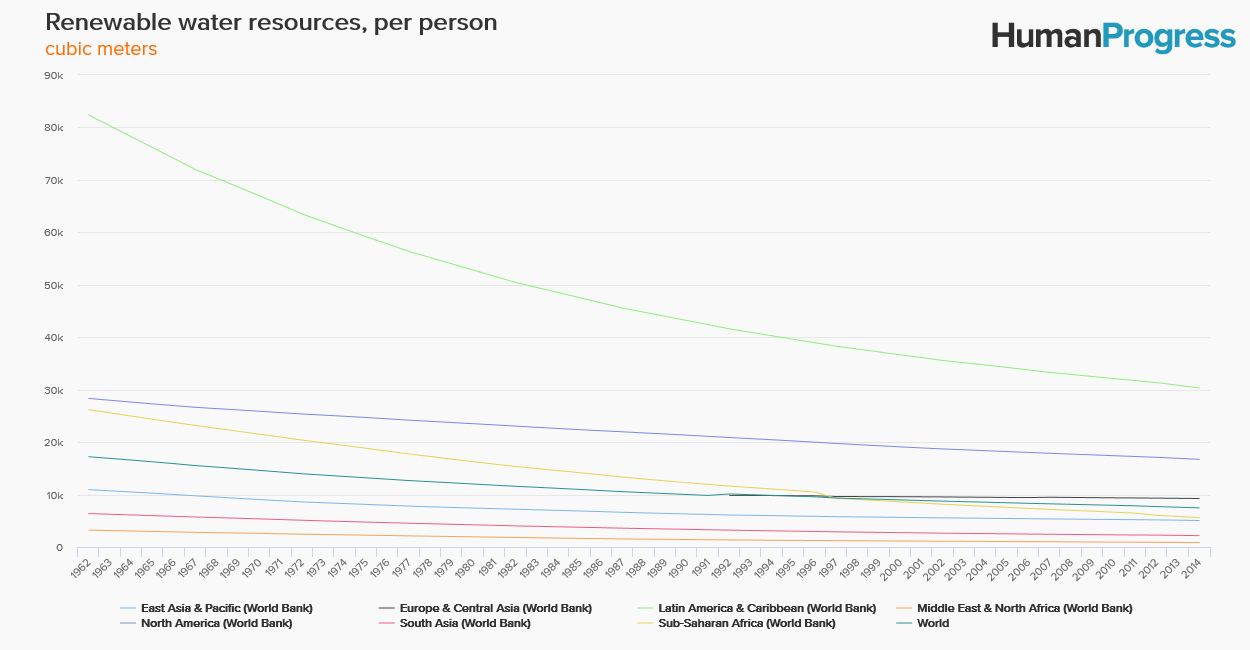Critics of Steven Pinker’s book Enlightenment Now argue that he is too optimistic about the role of technology in solving environmental problems. However, Israel’s success in desalination shows that market-driven innovation can solve environmental challenges and create abundance from scarcity.
Since he published his bestselling book, Enlightenment Now: The Case for Reason, Science, Humanism, and Progress, Steven Pinker has been criticized for excessive optimism. Jeremy Lent, for example, argues that Pinker is insufficiently concerned about depletion of the planet’s natural resources, including freshwater reserves. He faults the Harvard University psychologist for embracing a “neoliberal, technocratic belief that a combination of market-based solutions and technological fixes will magically resolve all ecological problems.” As Israel’s desalination efforts show, however, technological fixes and market-based solutions are an important part of humanity’s efforts to overcome environmental challenges.
Lent begins his piece by noting some worrying environmental trends, including “the rise in CO2 emissions; the decline in available freshwater; and the increase in the number of ocean dead zones from artificial fertilizer runoff.” Pinker does not deny that, in addition to many positive trends, including reduction of absolute poverty, increasing lifespans and declining violence, humanity faces important challenges. “Progress,” he writes, “is not the same as magic. There are always blips and setbacks… Clearly we have to be mindful of the worst possible setback, namely nuclear war, and of the risk of permanent reversals, such as the worst-case climate change scenarios.”

Take, for example, the freshwater supply. Between 1962 and 2014, renewable water resources per person declined from 17,220 cubic meters to 7,462 cubic meters. However, note that 71 percent of the Earth’s surface is covered by water. What’s needed in the areas most affected by drought, such as North Africa and the Middle East, is an affordable process of desalination that separates salt particles from water molecules. Israel has pioneered a desalination method that makes freshwater consumed by Israeli households 48 percent cheaper than that consumed by the people of Los Angeles. Desalination, writes Rowan Jacobsen in Scientific American,
“works by pushing saltwater into membranes containing microscopic pores. The water gets through, while the larger salt molecules are left behind. But microorganisms in seawater quickly colonize the membranes and block the pores, and controlling them requires periodic costly and chemical-intensive cleaning. But [Israeli scientist] Bar-Zeev and colleagues developed a chemical-free system using porous lava stone to capture the microorganisms before they reach the membranes… Israel now gets 55 percent of its domestic water from desalination, and that has helped to turn one of the world’s driest countries into the unlikeliest of water giants.
Lent critiques Pinker for failing “to take into account the structural drivers of [environmental] overshoot: a growth-based global economy reliant on ever-increasing monetization of natural resources and human activity.” In reality, free enterprise is not the problem. It is the solution. Relative scarcity leads to higher prices, higher prices create incentives for innovations, and innovations lead to abundance. Scarcity gets converted to abundance through the price system. The price system functions as long as the economy is based on property rights, rule of law and free exchange. In relatively free economies, resources do not get “depleted’ in the way that Lent fears – as witnessed by the fact that Earth is yet to run out of a single non-renewable resource.
That’s because the totality of our resources, including freshwater, are not fixed. Yes, the total number of atoms on Earth is finite, but the ways in which those atoms can be combined and recombined are infinite. What matters, then, are not the physical limits of our planet, but human freedom to experiment and reimagine the use of the resources that we have. As New York University economics professor Paul Romer writes,
To get some sense of how much scope there is for more such discoveries, we can calculate as follows. The periodic table contains about a hundred different types of atoms. If a recipe is simply an indication of whether an element is included or not, there will be 100 x 99 recipes like the one for bronze or steel that involve only two elements. For recipes that can have four elements, there are 100 x 99 x 98 x 97 recipes, which is more 94 million… Mathematicians call this increase in the number of combinations ‘combinatorial explosion.’ Once you get to 10 elements, there are more recipes than seconds since the big bang created the universe. As you keep going, it becomes obvious that there have been too few people on earth and too little time since we showed up, for us to have tried more than a minuscule fraction of the all the possibilities.
In contrast to free economies, statist societies without property rights, rule of law and free exchange tend to be much worse stewards of the planet. The Soviet Union and Maoist China, for example, were reckless abusers of their resources, including the most precious resource of all – human beings. The biggest distinction between free and statist societies is the value they place on human life. Free societies treat human beings as a valued resource, because it is only humans who have ideas and creative energy to convert those ideas into innovations. In contrast, statist societies tend to consider members of the human race as liabilities. As such, the road to statist utopias is strewn with corpses.
Lent is wrong to dismiss technological fixes and market-based solutions to our environmental problems. Within the context of a market economy, human beings not only use resources, but replenish and enlarge them. As such, Israel’s desalination plants supply drinking water not only to the Israelis, but also the inhabitants of the West Bank and diplomatic efforts are afoot to supply Israeli drinking water to the surrounding Arab countries. That’s progress.
This first appeared in CapX.

